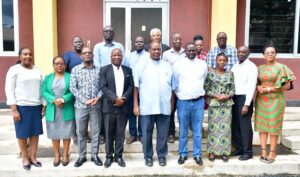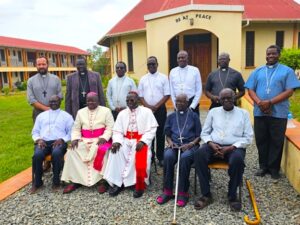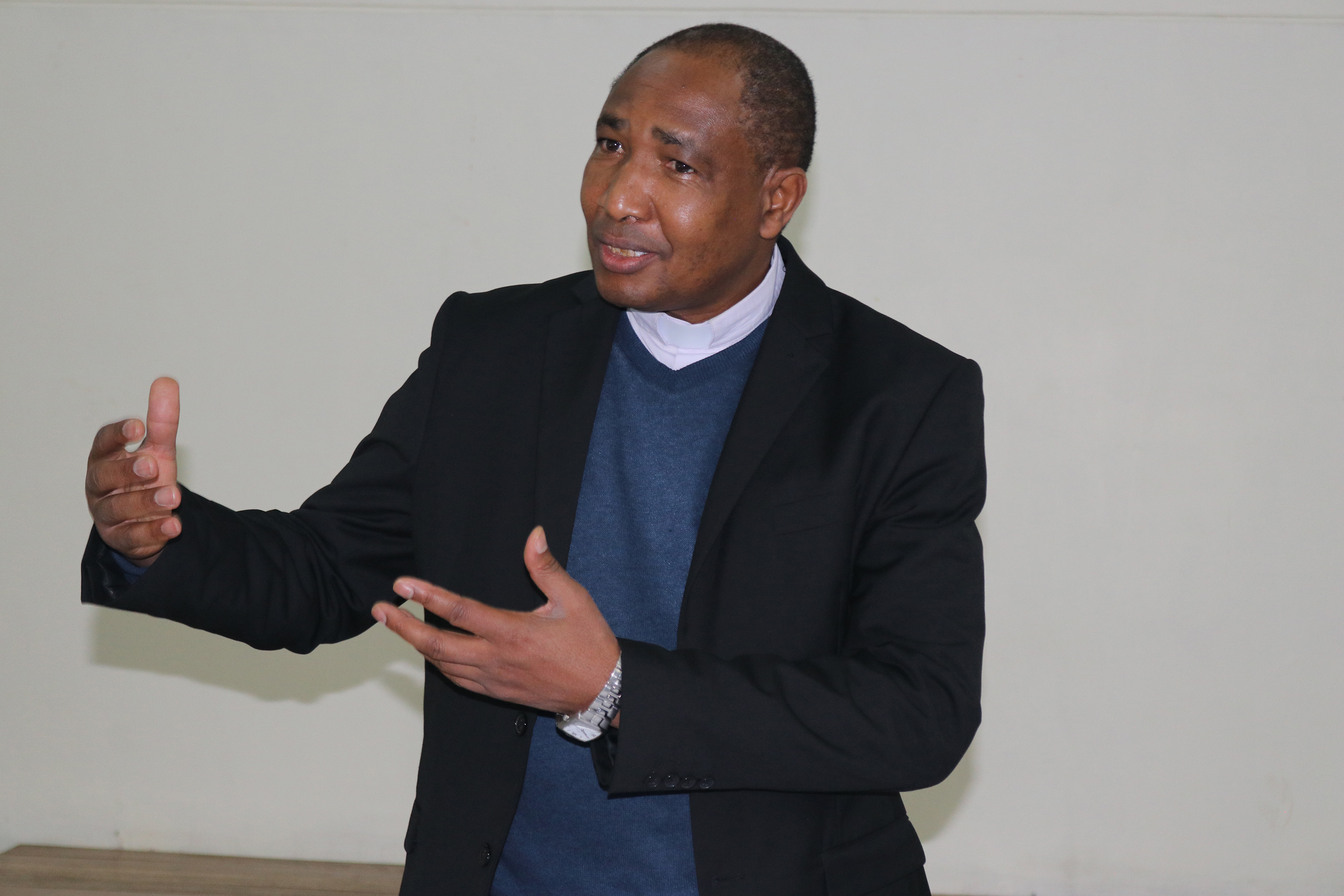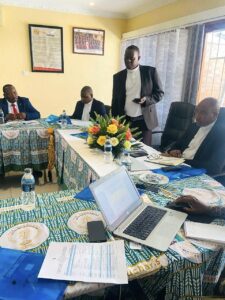AMECEA: We Create the Path by Walking Together/Journeying Together: Developing the Synodal Process in Eastern Africa
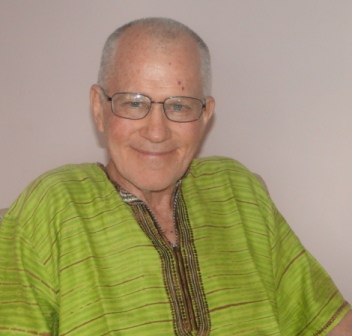
Joseph G. Healey, MM
Joseph G. Healey, MM
There is a popular saying in Spanish — We create the path by walking – that encourages the growth of Small Christian Communities (SCCs) in their local context in Africa from the grassroots up. A Sena (Mozambique) Proverb says: “Go in that direction” does not mean that you go. To go means, “let’s go together!” The spirit and practice of this saying and this African proverb help us to understand the development of the Synodal Process in the nine countries of AMECEA, namely Eritrea, Ethiopia, Kenya, Malawi, South Sudan, Sudan, Tanzania, Uganda and Zambia. We are focusing on these nine AMECEA countries but all together there are 54 countries in Africa. Below is a reflection by the writer on the virtual International Church Reform Network (ICRN) General conference which took place on Saturday, 29th January, 2022 under the theme: “Around the Globe: What the Synod Process Looks Like in Different Parts of the World.”
Today there are over 190,000 Small Christian Communities (SCCs) in the Catholic Church in these nine AMECEA countries in Eastern Africa. We have a saying “SCCs are not just a program or project in the parish, but a way of life.” SCCs are a new way of becoming church and a new pastoral model of church. Although the Eastern African bishops have the reputation of being conservative and hierarchical, they strongly support the SCCs model of Church as a key pastoral priority today.
What is a Small Christian Community?
A SCC is a small neighborhood, parish-based group in an urban or rural area in Eastern Africa that transforms the parish into a communion of communities and an instrument of evangelization. It is a small group of around 10-15 people who meet weekly in homes, at a parish, school or any other institution to reflect on the word of God, especially the Gospel of the following or current Sunday, and connect it to their daily life. More recently during the Covid19 pandemic, some members were meeting even online. In short, a SCC is a caring, sharing, faith reflecting, praying and serving community in Eastern Africa in which ongoing Christian formation and practical pastoral and social outreach takes place.
Listening to Africa
Sister Magdalena Chubwa CDMT, member of the Daughters of Mary Religious Congregation from Kigoma in Tanzania, says: “we already have the Synodal Process in Africa through our African community values and our SCCs. It is easy. It is a piece of cake.”
She explains further in an email to the writer:
In Eastern Africa we already have Small Christian Communities well established so it will be very easy during this Synodal Process when we are trying to collect some information through dialogue. We are already organized from the bottom of the Catholic Church (the family level). Meaning: evangelization in Eastern Africa has been from family to family, house to house and neighbor to neighbor and via the network of SCCs. This I believe is the “Synodal Process” the Pope wants us to do now and that we already have in Eastern Africa. In Eastern Africa we journey together on a daily basis. In other words, we can be a model for this 2021 — 2023 Synod.
For example, the three themes of the Synod: Communion, Participation, and Mission have been exercised for years. A strong unity/communion that is built from the family level allows people to participate fully during this process of their dialogue where they will openly share experiences about the mission of the Catholic Church in their ordinary life. In these sessions on either the SCCs, parish or diocese levels lay people are sharing their thoughts and not just those in authority as we are used to seeing. The Holy Spirit is the center of their reflections.
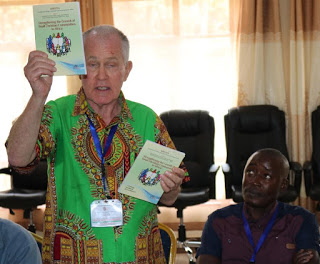 On her part, Sister Josée Ngalula RSA in Democratic Republic of the Congo (DRC) and a member of the International Theological Commission emphasizes that for real change to occur in our two-year 2021-2023 Synodal Journey, we have to change our Catholic Church structures [including changing Canon Law]. During a webinar organized by the African Synodality Initiative on 18th November, she had this to say:
On her part, Sister Josée Ngalula RSA in Democratic Republic of the Congo (DRC) and a member of the International Theological Commission emphasizes that for real change to occur in our two-year 2021-2023 Synodal Journey, we have to change our Catholic Church structures [including changing Canon Law]. During a webinar organized by the African Synodality Initiative on 18th November, she had this to say:
“We already have a new and important pastoral structure in Africa on the grassroots level — the Small Christian Communities (SCCs) or Basic Christian Communities (BCCs). We have to use and consolidate this basic structure to help us listen to the People of God especially lay men and lay women. SCCs is an ecclesial model of the Catholic Church in Africa. The new language is spiritual conversation, mutual listening and prayerful discernment. SCCs represent the spirit of synodality and the synodal process.”
Paschal Mahalagu is a Major Seminarian in the Segerea Senior Seminary, Dar es Salaam, Tanzania. Sharing his comments via AMECEA’s SCC’s Facebook on 26th December, 2021, he says:
“I am happy to participate in the Synodal Process through our Small Christian Communities (SCCs) here in the seminary! It is the wonderful experience! In each small gathering of our SCCs, we start by the invocation of the Holy Spirit, then a short prayer, thereafter we hear from each individual member! The future priests really participate actively.”
Gathering Responses from SCCs
Coordinators of the Synodal Process have been chosen and are active on the diocesan, parish and SCCs levels in Eastern Africa. However, the response is uneven depending on the country and diocese. The local context and situation are essential such as war and ethnic group conflicts in South Sudan, Ethiopia and Eritrea.
Right now, a questionnaire on the Synodal Process in electronic form and in print form is being answered by interested Catholics. Small Listener Sessions have started on the local level. SCC members use especially the WhatsApp social medium to communicate and exchange information.
A big challenge is how to reach and involve Catholics on the margins and the peripheries of society, for example, Catholic Young Adults who don’t go to church any more, Catholics who have not married in the Catholic Church, divorced and remarried Catholics, single mothers, etc. A new development is how to involve Muslims, Buddhists and members of other faith traditions in the Synodal Process as well as Protestants.
Go Digital or Die
A creative initiative in the present Synodal Process is the African Synodality Initiative (a partnership between the Jesuit Conference of Africa and Madagascar and AMECEA –the Association of Member Episcopal Conferences in Eastern Africa) that is providing resources that will enable the Local Churches in Africa (individuals and groups in dioceses, parishes and Small Christian Communities) to engage fruitfully and constructively in the ongoing Synodal Process.
The first webinar was on “Synodality in Africa: Practical Suggestions for Facilitating and Conducting Discussion, Consultation and Dialogue in Local Churches.”. The second webinar was on “Our Voices Count: African Youth Sharing Lived Experiences of Synodality.”
Some online resources following our principle ‘Go digital or die’ include:
- the Small Christian Communities (SCCs) Global Collaborative Website https://smallchristiancommunities.org.
- African Proverbs, Sayings and Stories Website: https://www.afriprov.org
- The Small Christian Communities (SCCs) Facebook Page
https://www.facebook.com/www.smallchristiancommunities.org
Allow me to end this reflection with a synodal process-type proverb from Burkina Faso: If you want to walk fast, walk alone. If you want to walk far, walk together.

